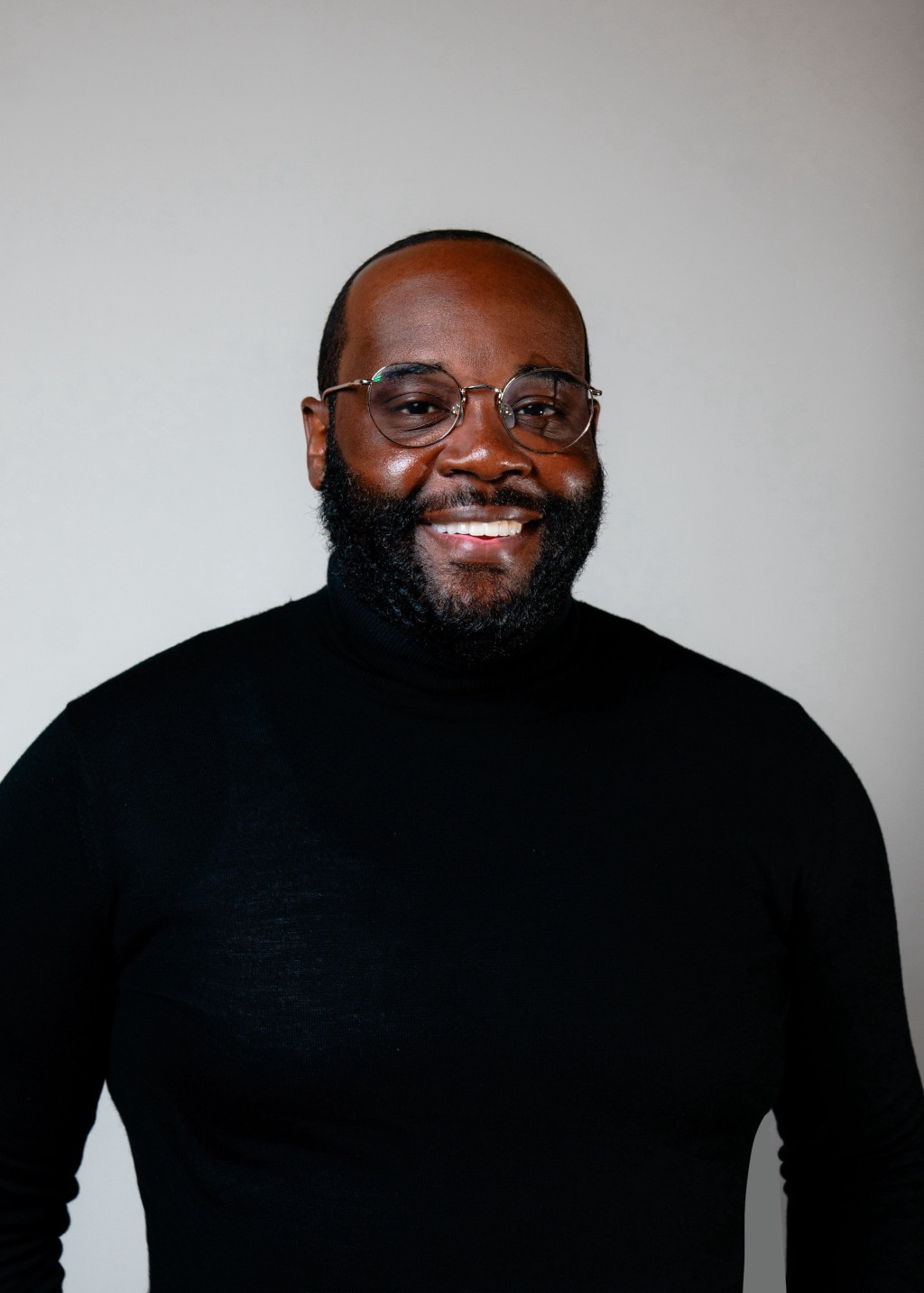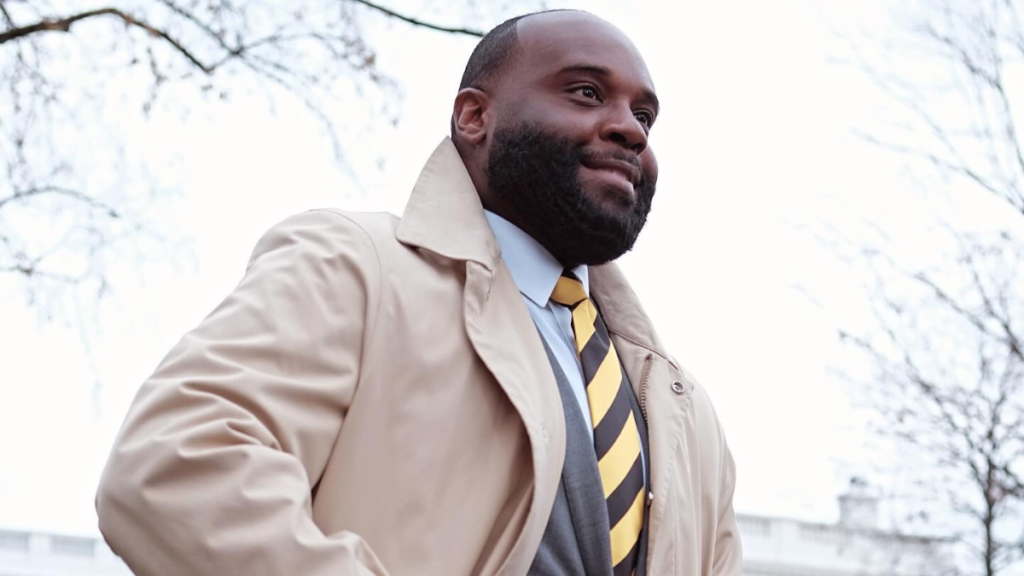On a quiet weekday afternoon, Kamau Marshall is walking through a park in DC, phone in hand, voice low but deliberate. He’s not rushing; he’s thinking. His conversations, like his career, move with purpose, each word measured, each silence carrying its own meaning.
Marshall has moved through rooms where timing and language are currencies: the White House, Capitol Hill, campaign war rooms, mayoral offices, and corporate boardrooms. He’s been the unseen hand behind the nation’s most resonant voices. One of the strategists who shaped how America sees its leaders, how they speak, and how they are understood.
Now, for the first time, he’s stepping into the light himself.
His firm, Think Toplines, is part strategy house, part storytelling laboratory, an advisory and consultancy built for leaders trying to break through the static of a fractured media world.
“Think Toplines is built for this media era, which is fragmented, fast, and unforgiving,” he says. “We combine campaign energy with executive polish and precision. The goal is simple: turn clarity into power, and power into results.”
But this unveiling, like most things in Marshall’s life, didn’t happen overnight.
Marshall’s story doesn’t start in a campaign headquarters or a TV studio. It begins with motion born in Chicago, and childhood lived experiences in Baltimore, Pittsburgh, Birmingham, Atlanta, and Columbus, GA. His father was a Presbyterian minister, and the family moved often, stitching together a life grounded in faith and untethered by geography.
“Moving taught me to read rooms,” he says. “It taught me to listen, to understand people, to adapt, and to build meaningful relationships.”
He studied journalism and public policy, imagining a life in front of the camera, not behind it. “Originally, I wanted to be a news anchor,” he recalls, laughing. “That was my original goal. I went to school to study news.” But politics found him.

Marshall also comes from a family of public servants: teachers, preachers, and advocates. Service, for him, is the family business. “I’ve always loved being a public servant,” he says.
“Serving people doesn’t always have to mean holding office. For me, it comes in different forms, and one of those forms is being a communications and messaging architect. Helping people be heard, helping them be seen the right way, and being a messenger, that’s one of the many ways I serve.”
Marshall has an unassuming way of describing what he does, though his work has shaped national narratives. “I call it being a messaging and communications architect,” he says.
“It’s knowing how to craft messages, how to develop and execute narratives, how to help people be seen the right way. In addition to knowing your audiences, mixing in cultural competency and coalition engagement, while combining it into communications and media.”
He tried, once, to step away. “I told someone I might take a break from all this, the media, communications, and politics. They said, ‘Kamau, you’re not thinking. You’re good at this. This is what you do, and you do it well. Not many have as many political wins and solid comms chops like you do.”
He laughed at the memory. “They were right. When you’re good at something, you’re good at it.”
In 2020, Marshall found himself in the middle of history, working on Joe Biden’s presidential campaign as Director of Strategic Communications. He pushed the candidate, then known for his old-school retail politics, into unexpected and non-traditional media spaces.
“I had him do The Shade Room, and he was the first presidential candidate to do it,” Marshall says, referencing the Instagram platform known for its cultural edge and predominantly Black audience.
“That was about stepping out of the traditional political bubble, speaking to a different audience, but still being himself.” It wasn’t a stunt; it was translation. Marshall was helping a future president be human, not just strategic. Others eventually followed.
He’s done that for governors, mayors, members of Congress, cabinet officials, CEOs, and cultural figures, helping them navigate moments of consequence and visibility. Some were household names; others were stories waiting to be believed. His approach is always the same: see the person, understand their why, show the world what’s real.
“Knowing when to push, when to pause, when to pivot — that’s the art,” he says. “My job is to help people be understood, not just noticed.”
Think Toplines isn’t a traditional firm. It’s not purely political, and it’s not strictly corporate. It’s built for complexity — for those leading states, cities, movements, companies, cultural shifts, and more.
“We help leaders show up effectively, not perform,” Marshall says. “That’s the difference. We don’t manufacture authenticity, we reveal it.”
The firm partners with public figures, elected officials, CEOs, institutional leaders, advocacy groups, and cultural influencers, anyone navigating the high-stakes intersection of messaging, identity, and impact.
Its ethos reflects Marshall’s own experience: the intersection of clarity and conviction.
Being a Black man in politics and communications is like carrying the unspoken weight; it also means moving through spaces that weren’t built with you in mind, and Marshall doesn’t shy away from that truth.
“Black men are not a monolith,” he says. “A lot of times, we are an afterthought. So, I take it upon myself to think about the people before me, around me, and those not even here yet.”
His fingerprints are on some of the most forward-thinking efforts to engage the American people and Black men in American politics.
He doesn’t talk about this work with fanfare, but with quiet urgency.
“Listening to Black men, hearing them, feeling them, that part matters,” he says. For all his success, Marshall knows that the landscape has shifted.
“People receive information in hundreds of ways now,” he says. “You can still do the traditional things, but you also have to meet people where they are, not where you’re comfortable.”
That philosophy, flexible, fast, and grounded in empathy, defines both his career and his firm. “If you refuse to evolve,” he adds, “you refuse to be heard.”
Kamau Marshall has spent years shaping how others speak, lead, and show up in the public eye. He’s been the strategist who turns chaos into coherence and the advisor who restores confidence to leaders on the edge of public doubt.
Now, he’s building something that reflects his own vision: a space where leaders can strategize and stand in their truth: clearly, powerfully, and humanly.
Three Things Kamau Marshall Believes About Leadership
- Clarity is currency: “If people can’t understand you, they won’t trust you. And if they don’t trust you, they won’t follow you.”
- Authenticity isn’t an act: “We don’t manufacture authenticity; we reveal it. That’s the core of my work.”
- Service has many forms: “Public service doesn’t start and end with government. In this moment in life, I serve through being a messenger, while helping people lead with truth, not performance.”




